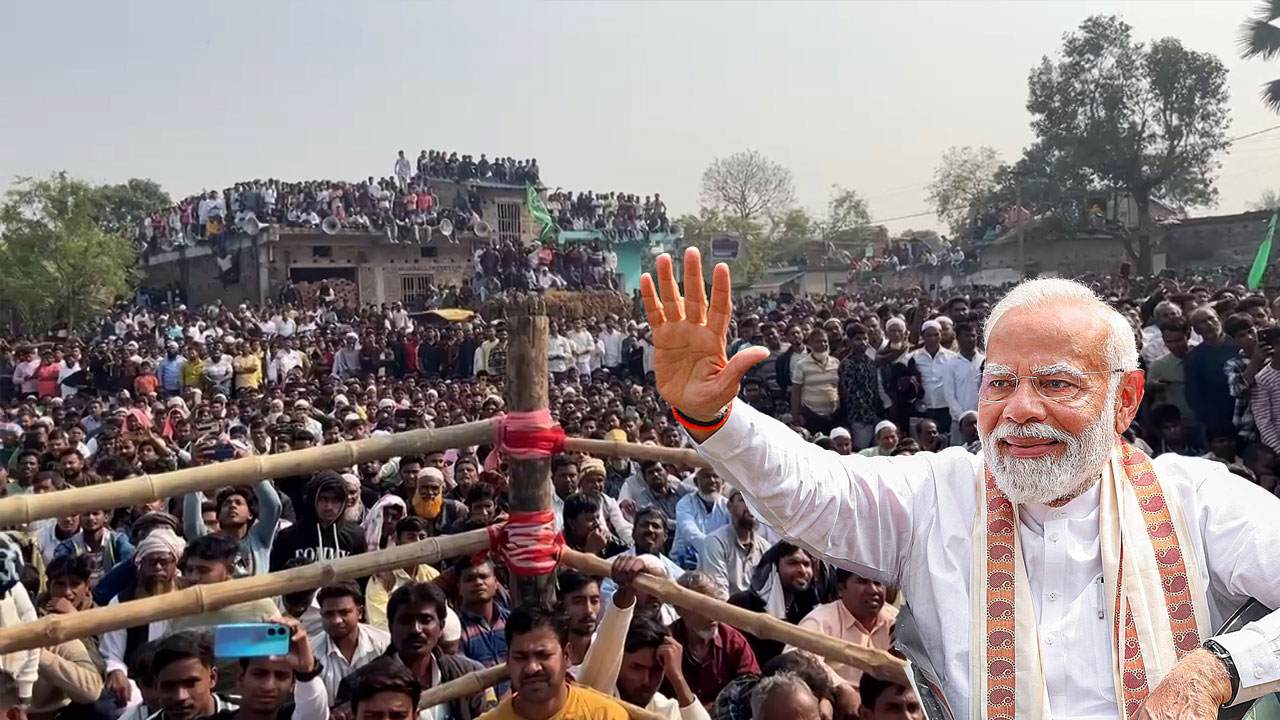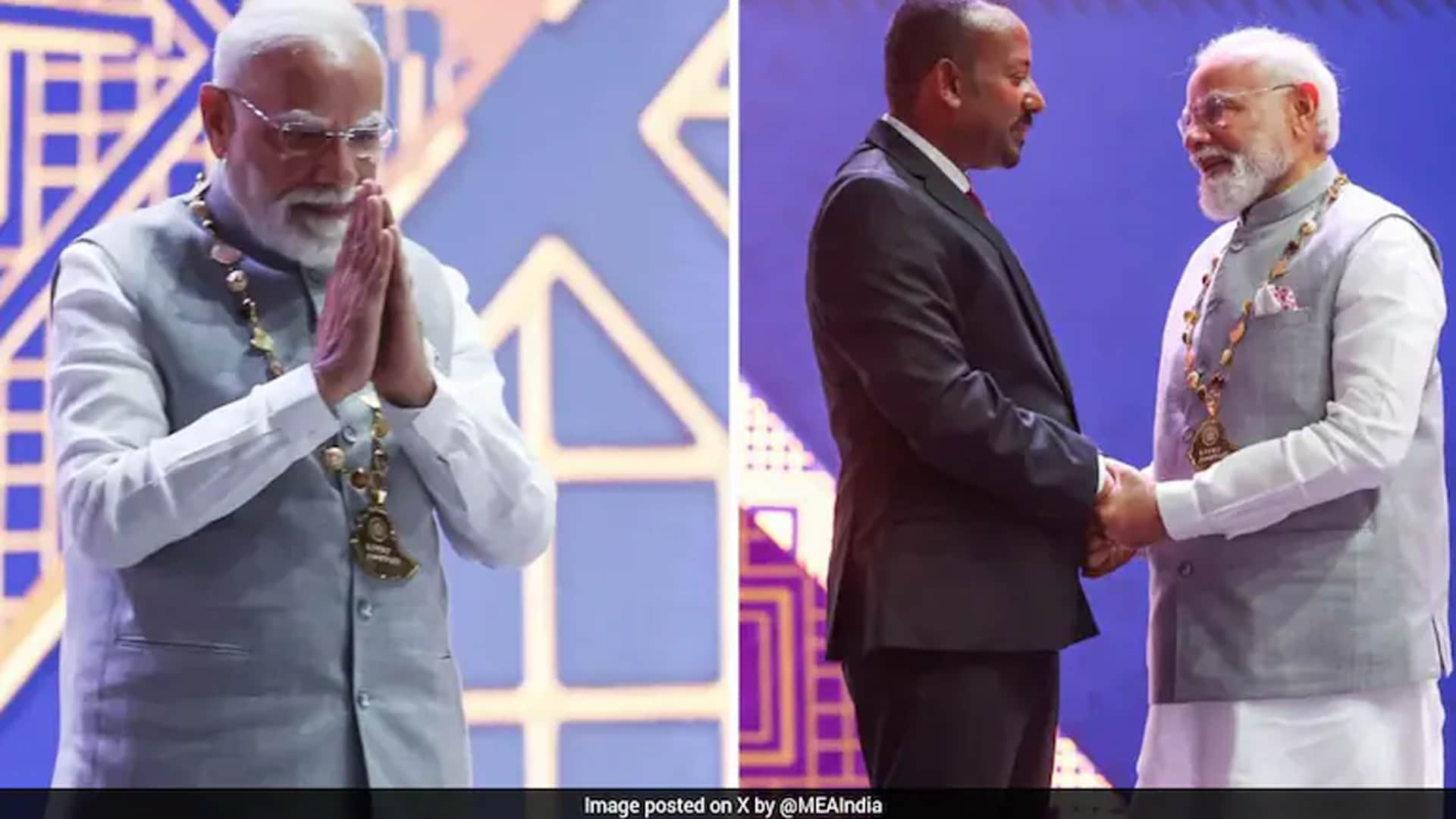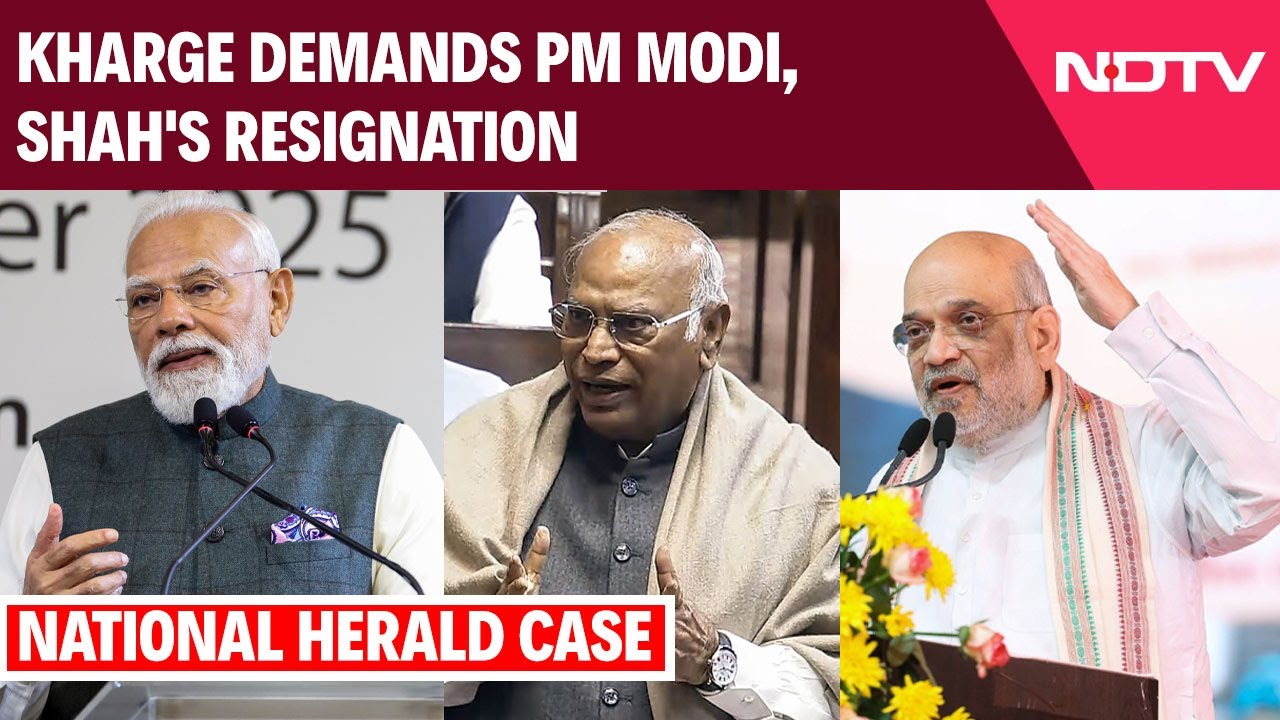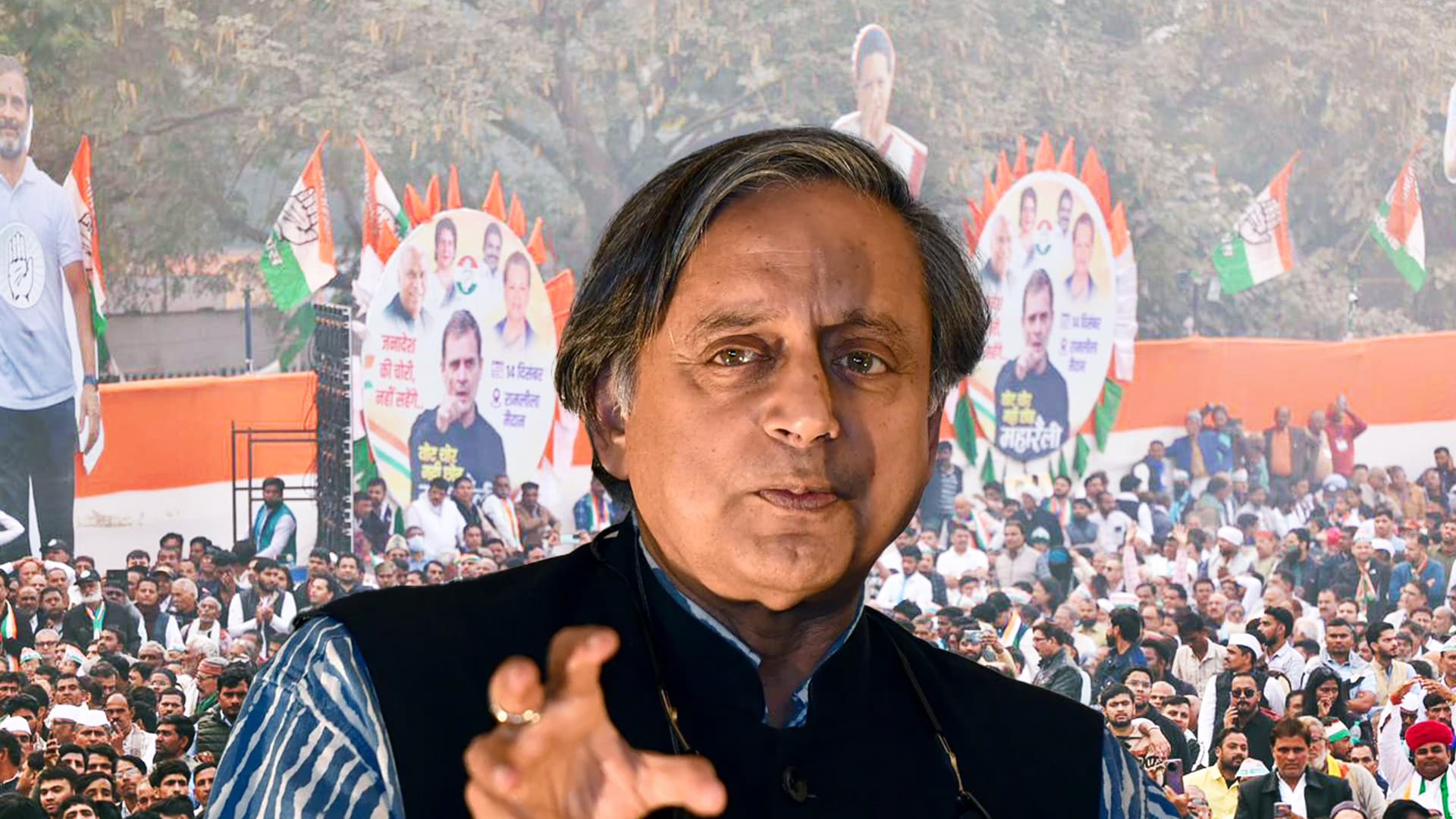PM Addresses Conclave On National Education Policy
Prime Minister Narendra Modi on Friday said that it is a matter of happiness that no section of the country has stated that the National Education Policy (NEP) has any bias.
"After the National Education Policy came, no section of the country said that the policy has any bias. It is a matter of happiness," Prime Minister Modi said while addressing a "Conclave on Transformational Reforms in Higher Education under National Education Policy", via video conferencing.
The conclave is organised by the Ministry of Human Resource Development and the University Grants Commission, an official statement said.
The NEP approved by the Union Cabinet at a meeting presided by Prime Minister Narendra Modi replaces the 34-year-old National Policy on Education framed in 1986 and is aimed at paving the way for transformational reforms in school and higher education systems to make India a global knowledge superpower.
Here are the highlights of PM Modi's address:
Today's conclave on the National Education Policy or NEP is very important. We will discuss this policy in detail and try to clear any doubts on it.
Today, there are views and opinions coming from all across the India. People are sharing their thoughts on this.
It has been widely welcomed and one thing that has been observed is that no one is saying that this policy has any bias towards any one area... that is a great thing.
Now everyone's focus is on how this will be implemented.
As far as the political will to implement this is concerned, I want to assure you that I am fully with you... all the way.
The NEP will lay the foundation of a New India... an India of the 21st Century.
It will prepare students for the future and with the knowledge that will be needed for the 21st Century.
Under this policy, when today's students will join tomorrow's workplaces, it will help India grow and take the lead in many areas.
The focus will be on understanding the subject, its practical implementation, critical thinking and innovative thinking. When a student is equipped with this, then it helps a great deal in a growing India.
Does our education policy just teach us or does it even empower us? Friends, I think we all know the answer to this.
Today, India is rising rapidly and has a standing in the world. We are aiming for our students to be global citizens and have a global standard. While that is important, it is also important to have a connect with our Indian roots.
Keeping all this in mind, this NEP has been introduced.
When students are taught in their mother tongue or regional language, their understanding of the subject becomes that much better. So, till class 5 learning in the mother tongue will help greatly. Once understanding of a subject is there, then the future is solid.
The old policy focused on 'what to think', but this new NEP focuses on 'how to think'. This is a significant difference.
We are also focusing on reducing the workload on a student and focus on what is needed at every stage.
Another few important things are that a student will have the freedom to study what they like and what they are interested in and are talented in. And hence they will be able to select the subjects that they will study after a certain stage.
Students who want to leave a subject or course midway and take up another course, that will also be allowed under a certain process.
Students of today will be prepared in future to be able to even switch careers at a later stage, instead of being stuck with only a certain type of job. For this, a constant upskilling of knowledge will be required.
Students will understand how the labour force is working and what is the dignity of labour. It is extremely important to see the contribution of the labour force. Students will see and learn from it.
The NEP has a focus to empower everyone and reach out to the student at the end of the line. Education to cover all and help transform the society in the times to come.
The NEP will also play an important role in merging education with research - both crucial areas.
The NEP not only focuses on empowering the students, but also empower the institutions of higher education.
And the moment you empower an institution, it leads to autonomy. The institution that focuses on improving the quality of education, then they must be incentivised with the freedom to do so in the manner they deem fit.
Dr APJ Abdul Kalam used to say the purpose of education is to create good human beings with desired skills in a discipline. A student can be enlightened by a good teacher.
The NEP will also give great importance to the dignity of respect of teachers, and teachers' training will have a big focus in this policy. When a teacher is empowered, a nation leads.
The NEP will also ensure that India's talent base stays and contributes to take India to new heights. This policy will play a great role in giving direction to India over the next century.
"After the National Education Policy came, no section of the country said that the policy has any bias. It is a matter of happiness," Prime Minister Modi said while addressing a "Conclave on Transformational Reforms in Higher Education under National Education Policy", via video conferencing.
The conclave is organised by the Ministry of Human Resource Development and the University Grants Commission, an official statement said.
The NEP approved by the Union Cabinet at a meeting presided by Prime Minister Narendra Modi replaces the 34-year-old National Policy on Education framed in 1986 and is aimed at paving the way for transformational reforms in school and higher education systems to make India a global knowledge superpower.
Here are the highlights of PM Modi's address:
Today's conclave on the National Education Policy or NEP is very important. We will discuss this policy in detail and try to clear any doubts on it.
Today, there are views and opinions coming from all across the India. People are sharing their thoughts on this.
It has been widely welcomed and one thing that has been observed is that no one is saying that this policy has any bias towards any one area... that is a great thing.
Now everyone's focus is on how this will be implemented.
As far as the political will to implement this is concerned, I want to assure you that I am fully with you... all the way.
The NEP will lay the foundation of a New India... an India of the 21st Century.
It will prepare students for the future and with the knowledge that will be needed for the 21st Century.
Under this policy, when today's students will join tomorrow's workplaces, it will help India grow and take the lead in many areas.
The focus will be on understanding the subject, its practical implementation, critical thinking and innovative thinking. When a student is equipped with this, then it helps a great deal in a growing India.
Does our education policy just teach us or does it even empower us? Friends, I think we all know the answer to this.
Today, India is rising rapidly and has a standing in the world. We are aiming for our students to be global citizens and have a global standard. While that is important, it is also important to have a connect with our Indian roots.
Keeping all this in mind, this NEP has been introduced.
When students are taught in their mother tongue or regional language, their understanding of the subject becomes that much better. So, till class 5 learning in the mother tongue will help greatly. Once understanding of a subject is there, then the future is solid.
The old policy focused on 'what to think', but this new NEP focuses on 'how to think'. This is a significant difference.
We are also focusing on reducing the workload on a student and focus on what is needed at every stage.
Another few important things are that a student will have the freedom to study what they like and what they are interested in and are talented in. And hence they will be able to select the subjects that they will study after a certain stage.
Students who want to leave a subject or course midway and take up another course, that will also be allowed under a certain process.
Students of today will be prepared in future to be able to even switch careers at a later stage, instead of being stuck with only a certain type of job. For this, a constant upskilling of knowledge will be required.
Students will understand how the labour force is working and what is the dignity of labour. It is extremely important to see the contribution of the labour force. Students will see and learn from it.
The NEP has a focus to empower everyone and reach out to the student at the end of the line. Education to cover all and help transform the society in the times to come.
The NEP will also play an important role in merging education with research - both crucial areas.
The NEP not only focuses on empowering the students, but also empower the institutions of higher education.
And the moment you empower an institution, it leads to autonomy. The institution that focuses on improving the quality of education, then they must be incentivised with the freedom to do so in the manner they deem fit.
Dr APJ Abdul Kalam used to say the purpose of education is to create good human beings with desired skills in a discipline. A student can be enlightened by a good teacher.
The NEP will also give great importance to the dignity of respect of teachers, and teachers' training will have a big focus in this policy. When a teacher is empowered, a nation leads.
The NEP will also ensure that India's talent base stays and contributes to take India to new heights. This policy will play a great role in giving direction to India over the next century.
































